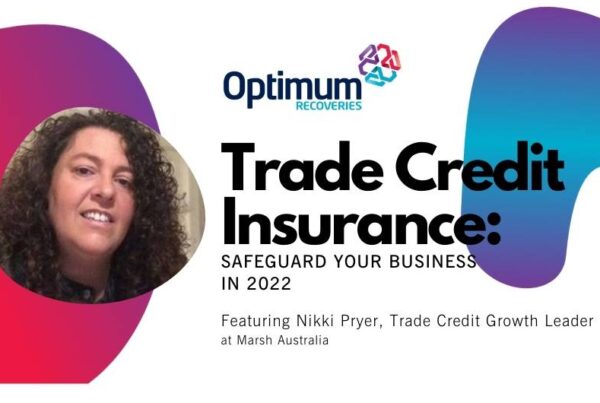With the uncertainty of lockdowns and border restrictions impacting small and medium businesses around Australia, now is the perfect time to work on your business to make sure you get paid during the pandemic. Working on your credit policies and processes and focusing on debt prevention, automation, and communication can help to make sure you’re in a better position when business picks back up again.
In our recent webinar on getting paid in the pandemic, we discussed how businesses can prevent, manage and recover debt through smart implementation of financial software and strategic policies. If you spend some time focusing on your due diligence before you’re in dire need of debt recovery services, you can avoid bigger problems down the track, helping you to enjoy smooth business operations and better relationships with your customers.
Prevention
We often remind businesses that prevention is better than a cure. A really important tool for debt prevention is having solid terms and conditions. These terms and conditions can either be in an application form, a proposal, a quote, or something along those lines. This allows your customer to easily see your payment terms and conditions when you provide information related to the charge for a service or good.
If you have an agreement in place with clear terms and conditions, then your customers are agreeing to the terms and conditions when they enter into business with you. There’s no point trying to give someone your terms and conditions after the deal is done.
Your terms and conditions should include:
- Who you are working with and who your customer is
- Protections around securities (e.g. the PPSR, retention of title, cost recovery, interest and late payment fees)
- Right of access to enter premises and collect your goods if it’s required
As a general rule, it’s a good idea to review your terms and conditions every 2-3 years. This really depends on your business and other circumstances, but it’s a good idea to have a look every now and then to make sure you are up to date and running efficiently. Your terms and conditions are so important when aiming for debt prevention rather than debt recovery.
Optimum Recoveries offer a complimentary review of terms and conditions for creditors, and we look at them from end to end to make sure that it’s secure without being scary. We make sure that it covers current legislation and refers to the right Acts, and also uses plain English that is easy for your customers to understand.
Automation
In our current day and age, automation is becoming less of a business add-on and more of a business necessity. Streamlining your business processes will help to make the running of your business easier and reduce your risk of bad debt.
One of the issues we are seeing at the moment is that people aren’t attaching their terms and conditions to their quote emails. They might refer to it in the fine print, but they aren’t making it easily accessible for their customers who are often on the go and don’t have time to go searching for this information.
Accounting automation tools such as Xero are excellent in helping to send out your quotes, including your terms and conditions. You can rest easy knowing that your terms and conditions will always be sent out with your quote in an accessible and easy to read format. When the terms and conditions are very clear for both you and your customer it prevents problems from happening down the track and, at the end of the day, saving you time and money.
Another way to streamline your business is to have e-signature capabilities. We live in a world where we just don’t have the time to wait for snail mail. When automating your approval process, it’s also important to have clauses in your terms and conditions that allow for e-signatures and electronic transmission of documents. If this approval process is agreed upon in the terms and conditions, you can get business started quicker with less complications.
Communication
When it comes to reducing your risk of bad debt and getting paid quicker, communication really is key. When we talk about communication in regard to debt management, we are talking about these two things:
- Picking up the phone occasionally to check in on your customers
- Keeping your cool when chasing payment from one of your customers
Firstly, picking up the phone every now and then to check in on your customers and make sure they are doing okay can make a huge difference. You aren’t calling them to chase a payment, you are just calling them on a professional but friendly basis to be proactive and potentially prevent any problems before they happen.
Taking the time to ask your customers and debtors how they are doing in these difficult times can not only help in encouraging a good and open relationship between yourself and your clients, but could also give you hints at potential financial problems behind the scenes.
Secondly, if you’re not able to keep your cool or not get frustrated with your customer when chasing up a payment, then you consider getting a third party to make the call. In these situations, it’s much better to get a debt collection professional to make your debt recovery calls as they will be able to take a step back from the situation and work towards a better outcome for everyone involved.
There are rules and guidelines that creditors and debt collectors have to work within about the way in which they speak with customers, how often they speak with customers, and the tone of voice they use to speak with customers. If you aren’t confident with the above, then look into hiring a professional who will have that empathy while also letting your customers know that the bill needs to be paid.
If you’re looking for further assistance on how to reduce your risk of bad debt, give Optimum Recoveries a call on 1300 556 937 or check out our website at www.optimumrecoveries.com.au for more information.




